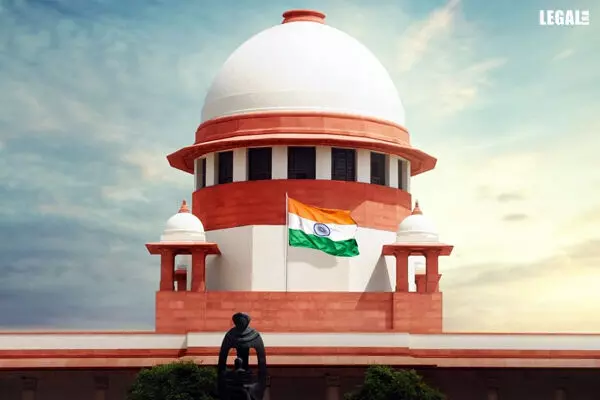- Home
- News
- Articles+
- Aerospace
- AI
- Agriculture
- Alternate Dispute Resolution
- Arbitration & Mediation
- Banking and Finance
- Bankruptcy
- Book Review
- Bribery & Corruption
- Commercial Litigation
- Competition Law
- Conference Reports
- Consumer Products
- Contract
- Corporate Governance
- Corporate Law
- Covid-19
- Cryptocurrency
- Cybersecurity
- Data Protection
- Defence
- Digital Economy
- E-commerce
- Employment Law
- Energy and Natural Resources
- Entertainment and Sports Law
- Environmental Law
- ESG
- FDI
- Food and Beverage
- Gaming
- Health Care
- IBC Diaries
- In Focus
- Inclusion & Diversity
- Insurance Law
- Intellectual Property
- International Law
- IP & Tech Era
- Know the Law
- Labour Laws
- Law & Policy and Regulation
- Litigation
- Litigation Funding
- Manufacturing
- Mergers & Acquisitions
- NFTs
- Privacy
- Private Equity
- Project Finance
- Real Estate
- Risk and Compliance
- Student Corner
- Take On Board
- Tax
- Technology Media and Telecom
- Tributes
- Viewpoint
- Zoom In
- Law Firms
- In-House
- Rankings
- E-Magazine
- Legal Era TV
- Events
- News
- Articles
- Aerospace
- AI
- Agriculture
- Alternate Dispute Resolution
- Arbitration & Mediation
- Banking and Finance
- Bankruptcy
- Book Review
- Bribery & Corruption
- Commercial Litigation
- Competition Law
- Conference Reports
- Consumer Products
- Contract
- Corporate Governance
- Corporate Law
- Covid-19
- Cryptocurrency
- Cybersecurity
- Data Protection
- Defence
- Digital Economy
- E-commerce
- Employment Law
- Energy and Natural Resources
- Entertainment and Sports Law
- Environmental Law
- ESG
- FDI
- Food and Beverage
- Gaming
- Health Care
- IBC Diaries
- In Focus
- Inclusion & Diversity
- Insurance Law
- Intellectual Property
- International Law
- IP & Tech Era
- Know the Law
- Labour Laws
- Law & Policy and Regulation
- Litigation
- Litigation Funding
- Manufacturing
- Mergers & Acquisitions
- NFTs
- Privacy
- Private Equity
- Project Finance
- Real Estate
- Risk and Compliance
- Student Corner
- Take On Board
- Tax
- Technology Media and Telecom
- Tributes
- Viewpoint
- Zoom In
- Law Firms
- In-House
- Rankings
- E-Magazine
- Legal Era TV
- Events
Supreme Court Clarifies Twin Requirements For Liability Under Section 141 Of NI Act

Supreme Court Clarifies Twin Requirements For Liability Under Section 141 Of NI Act
The Supreme Court recently reiterated that for an offence to fall under Section 141 of the Negotiable Instruments Act, 1881 concerning the dishonour of a cheque by a company two essential conditions must be met. The Court emphasized that the accused must be both in charge of and responsible for the company’s business operations.
“There are twin requirements under sub-Section (1) of Section 141 of the 1881 Act. The complaint must specifically allege that the individual sought to be held liable, at the time of the offence, was in charge of and responsible for the conduct of the company's business. A Director who is merely in charge of the company and a Director responsible for its business conduct are distinct aspects. Both these ingredients must be incorporated in the complaint,” the Court clarified.
The case arose from a cheque dishonour complaint filed against a company and its directors, including the appellant. The appellant approached the High Court seeking to quash the complaint, arguing that he was neither responsible for the company’s daily affairs nor a signatory to the dishonoured cheques. However, the High Court dismissed the appeal and imposed a cost of ₹20,000.
The Supreme Court, hearing the appeal, observed that only the signatory of the cheque could be held liable for the alleged offence. Since the complaint did not allege that the appellant was in charge of the company’s business at the time of the offence, the Court ruled that he could not be prosecuted under Section 141(1).
“Admittedly, there is no assertion in the complaints that the appellant, at the time of commission of the offence, was in charge of the business of the company. Therefore, on a plain reading of the complaints, the appellant cannot be prosecuted with the aid of sub-Section (1) of Section 141 of the 1881 Act,” the Court held.
Accordingly, the Supreme Court set aside the High Court’s orders and allowed the appeal. However, it clarified that the merits of the complaint concerning the other accused persons remain open for adjudication by the Trial Court.



